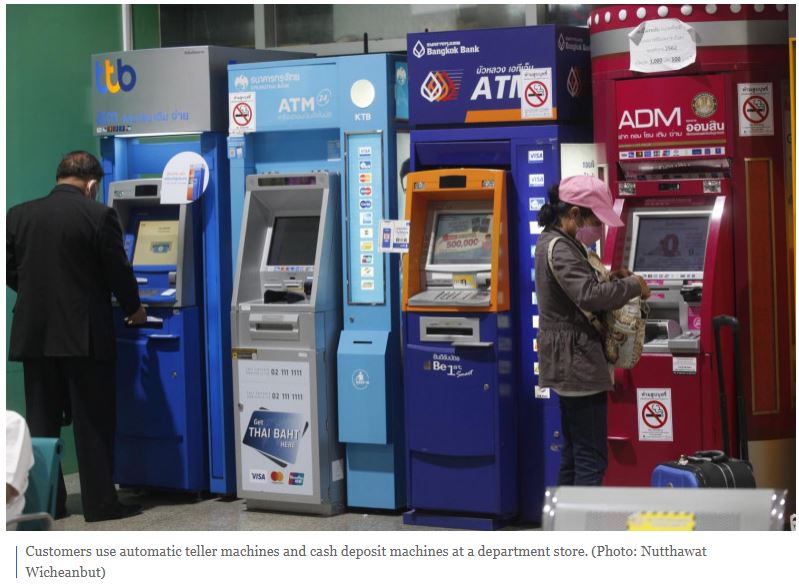Thailand: BoT looks for cash deposit solutions
The Bank of Thailand intends to find solutions to make cash deposit machines (CDMs) more convenient, following new regulations from the Anti-Money Laundering Office (Amlo) on their use.
Central bank governor Sethaput Suthiwartnarueput said on Thursday that the bank is collaborating with relevant regulatory agencies and the Thai Bankers’ Association to seek solutions for depositing cash at CDMs.
Amlo recently introduced a new rule which means depositors can only use plastic cards for cash deposits at the machines, in an attempt to prevent money laundering. The new rule sparked complaints from some consumers about the inconvenience.
The new rule was meant to come into force on Nov 15, but this has now been put on hold, according to Mr Sethaput.
Consumers can currently deposit money at CDMs by either inserting their plastic card or merely entering a bank account number.
“Solutions could include the use of an ID card number, one-time password, or mobile banking app. However, the central bank will have to discuss the matter with other related parties before making a decision,” Mr Sethaput said.
He said the use of ID cards for financial transactions at CDMs could create a higher risk for consumers if, for instance, they forget to withdraw the cards from the machines.
At the same time, banks need to adjust the technology of CDMs to allow for the use of ID cards for money deposits, which would increase the banking sector’s operational costs, he said.
In a related matter, Mr Sethaput on Thursday said at a central bank seminar about digital finance that it wanted responsible innovation in the country’s digital technology development.
Besides building up productivity, he said responsible innovation development of the financial sector would help upgrade innovative technologies with more sustainability and resiliency, while improving financial inclusivity.
Such innovation would open up more opportunities for underbanked people to better access financial services, while innovation development without responsibility would create higher risks for consumers as cyber-risks rise, said Mr Sethaput.
The central bank is attempting to strike a balance between innovation development and risk management of the financial sector. As a result, the bank believes regulations should not be an obstacle for the innovation development of the private sector, but rather should be a guard-rail supporting innovation development of the banking industry.
In addition, Mr Sethaput said the public sector or regulators should cooperate with the private sector to develop innovations, to benefit everyone and the overall economy. With the new direction, the regulators should set up clear requirements in order to solve pain points in each area and allow the private sector to develop innovations and technologies in response to their clear requirements.
The Bank of Thailand announced on Wednesday that it had collaborated with the Hong Kong Monetary Authority, the Central Bank of the United Arab Emirates, the Digital Currency Institute of the People’s Bank of China, and the BIS Innovation Hub Hong Kong Center to successfully complete a pilot project using wholesale central bank digital currencies (wholesale CBDC) for real-value cross-border payment transactions, as part of the Multiple Central Bank Digital Currency Bridge Project.
The project is in the phase following Project Inthanon-LionRock Phase 2, which was conducted in 2021.
Mr Sethaput said wholesale CBDC would be another game changer in the area of cross-border payments, in addition to PromptPay, Thailand’s existing digital payment infrastructure.
The central bank will continue to create more use cases of wholesale CBDC for the next phase, he added.
Source: https://www.bangkokpost.com/business/2424435/bot-looks-for-cash-deposit-solutions


 English
English




